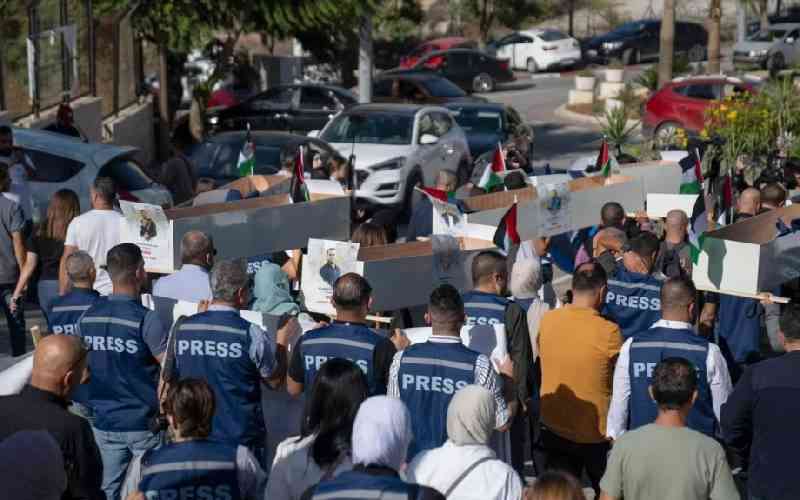×
The Standard e-Paper
Smart Minds Choose Us

The ongoing war between Israel and the militant group Hamas has taken a "record toll" on journalists, a press freedom group said Thursday.
With at least 68 journalists killed since the war began on October 7, more journalists have been killed in the first 10 weeks of the conflict than have ever been killed in a single country over the course of an entire year, according to the Committee to Protect Journalists, or CPJ.